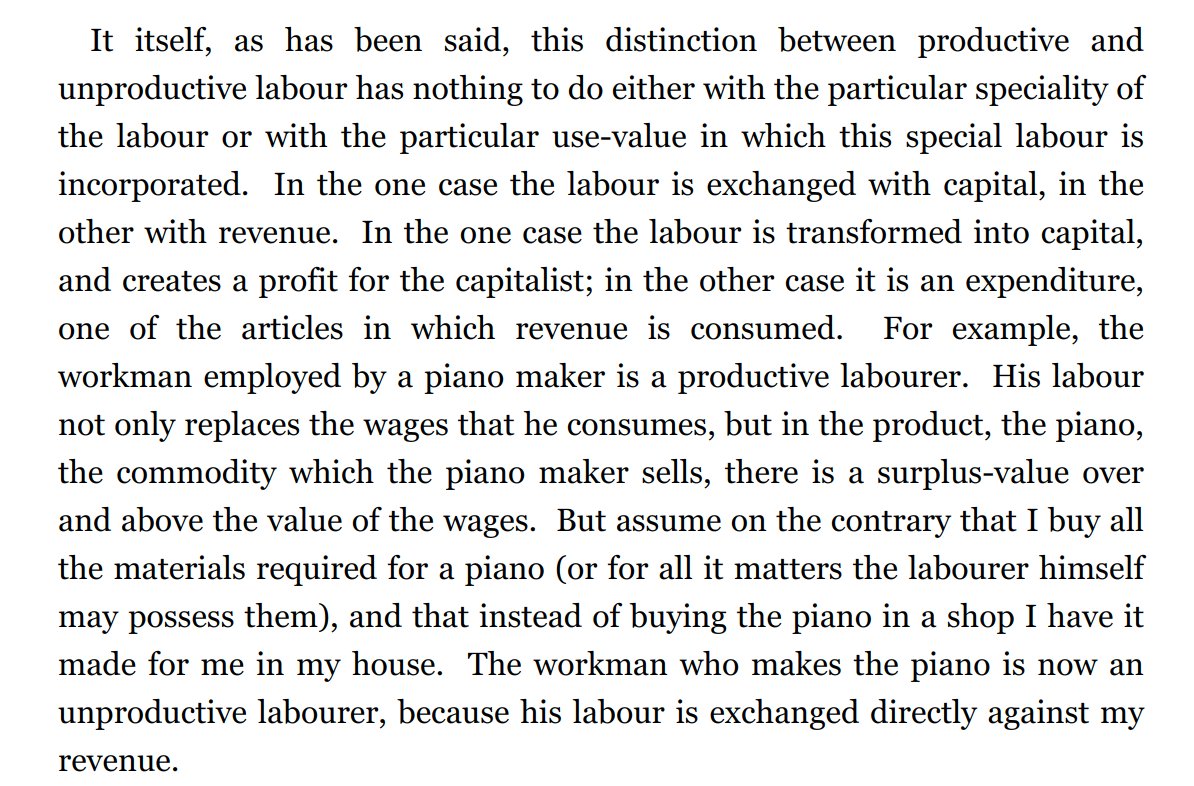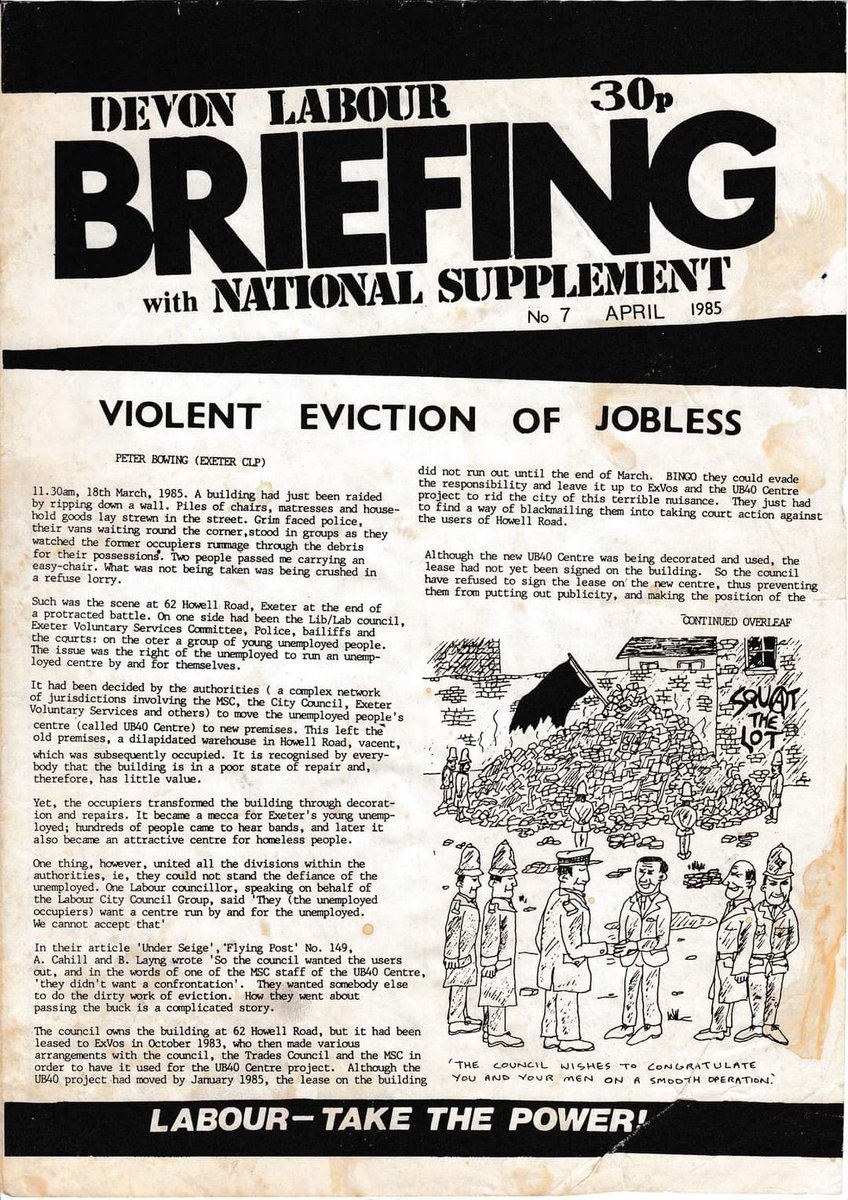OK I'm going to live-tweet Bernie Sanders' Green New Deal statement 'cos why not.
Here's the document: berniesanders.com/the-green-new-…
Here's the document: berniesanders.com/the-green-new-…
The first paragraph starts out OK. The second paragraph: "we must guarantee health care, housing, and a good-paying job to every American". Healthcare and housing sure. Jobs, why exactly? Productivism creeping in already.
"Battling a world war on two fronts—both in the East and the West—the United States came together, and within three short years restructured the entire economy in order to win the war and defeat fascism"
presented without comment
presented without comment
"Reaching 100 percent renewable energy for electricity and transportation by no later than 2030 and complete decarbonization by at least 2050". This notably leaves out the US military, one of the world's largest polluters in its own right.
This is.. decent?
"five years of unemployment insurance, a wage guarantee, housing assistance, job training, health care, pension support, and priority job placement for any displaced worker, as well as early retirement support for those who choose it or can no longer work"
"five years of unemployment insurance, a wage guarantee, housing assistance, job training, health care, pension support, and priority job placement for any displaced worker, as well as early retirement support for those who choose it or can no longer work"
Gets the left populism in early. But note this completely leaves out the car industry. That's because the plan includes massive car industry subsidies! 

Maybe there's more later, but in the introductory statements Bernie is really explicit that you'll get grants for home upgrades and a new electric car, powered by new renewable power plants, and really not explicit about almost anything else. 

Interesting national security framing here. Military spending can be scaled back *once* it becomes less necessary to secure oil supplies. So far the only mention of the military. 

This is really going hard playing nearly other capital sector against the fossil fuel industry. He's promising other major polluting industries (cars, construction) massive subsidies which may or may not get them onside. 

Not in the document yet but to really attack the fossil fuels industry you'd have to not award them government contracts to build new renewables infrastructure, which they're more than happy to do. Even saw a solar powered fracking operation the other week.
Stuff like loft insulation is fine obviously. I don't see 'living in the empty houses of the rich' listed as an option here though, it's all based on construction subsidies within existing property relations. 

Add to fossil fuels the nuclear industry. This could have been quietly omitted from co sidsration so interesting to see the strong stance. 

So as expected the transport section is fucked. The entire section boils down to trillions of $ to subsidise 1-1 replacement for electric vehicles. Intercity high speed rail. That's it. Walking, cycling, reducing commute journeys altogether, don't even get a mention. 

People pitching this as bold and audacious or whatever are just looking at the amount of money and not what's being proposed. It's a tonne of money to decarbonise* while keeping as much as possible exactly the same.
Natural carbon sequestration does get a look in, but the amount of money allocated is considerably less than for subsiding new cars for everyone. 

OK I got to the end. The stuff on agriculture is slightly better than expected. The stuff on transport was even worse than my extremely low expectations. Most of the money here is for economic stimulus rather than actually combating climate change.
Also unless I missed it this really was the only mention of the military.
https://twitter.com/libcomorg/status/1164532539454828545
This is the kind of thing with transport that is just not in here at all, it is also completely missing from AOC's GND document.
https://twitter.com/libcomorg/status/1122046411351183361
Other stuff that doesn't get a look in: durability of goods. There is a section on recycling of materials, but not on things like washing machines breaking down a week after two year warranty expiration or the amount of stuff that is built for single use or impossible to repair.
Even within a reformist framework you could have something like increasing statutory warranties and free repair to discourage built-in obsolescence. Instead of this we have carbon tracking of foreign commodities and tariffs.
I did miss the other bit on the military. There is this paragraph in between bits about the Paris agreement. This is put forward as multilateral rather than unilateral though
https://twitter.com/DaytonRMartind/status/1164564047930560512
This is interesting because between skim-reading and tweeting I spent an hour or so on this thread, and was able to find massive holes in a plan costing how many dollars and hours to produce? Like it not even mentioning walking or cycling?
https://twitter.com/jefglass/status/1164601014013562882
There's a tendency with communist ecological writing to stop at 'we need to abolish capitalism' without fully explaining the practical things that need to happen to deal with climate catastrophe which capitalism works against. Sanders' document shows the limits pretty clearly.
Like with lawns. Replacing water-intensive monocrop that provides almost zero habitat and absorbs very little carbon (maybe releases some once you factor in turf industry) needs to happen communism or not, and probably can happen either way.
https://twitter.com/libcomorg/status/1164543718457839616
But the obsession with massive industrial subsidies, job creation, 1-1 replacements of vehicles instead of reorganising cities and work in general. There are reformist versions that could be drawn on (UBI, Dutch-style cycle infrastructure) but even these don't make it in.
It's hard to tell whether they were rejected ideologically, or whether it's an electoral calculation. Blaming everything on the fossil fuel industry and letting the car and road building industry completely off the hook seems like a very specific calculation to me though.
• • •
Missing some Tweet in this thread? You can try to
force a refresh















